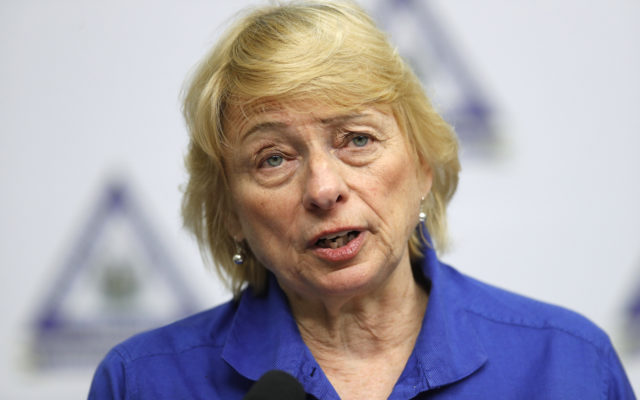
Janet Mills stands firm on plan to restart businesses despite flood of complaints
Click here for the latest coronavirus news, which the BDN has made free for the public. You can support our critical reporting on the coronavirus by purchasing a digital subscription or donating directly to the newsroom.
Amid criticism of her plan to reopen Maine’s economy from hospitality and other businesses, Gov. Janet Mills on Friday stood firm on allowing businesses to restart in stages over the next few months.
Acknowledging that some people are frustrated and angry, she said she is proceeding in consultation with people and businesses, with public health as the first priority. She asked for patience and continued communication.
“There’s no simple solution here, no one size fits all,” Mills said at a Friday news conference that she left without taking questions.
Certain Maine businesses were allowed to open under strict conditions Friday following Mills’ rollout schedule, which she announced Tuesday. They included hair salons, dog groomers and automobile dealerships. Many hospitality businesses, including hotels and restaurants, could remain closed well into the summer.
The rollout plan and the checklists of criteria that certain industries need to follow raised questions immediately, with some businesses like hairdressers wondering whether they could meet all the safety requirements to reopen.
The tourism industry, whose hotel, restaurant and bar owners have been hit hard by the economic shutdown and stay-at-home order, has been frustrated by the reopening schedule and lack of details.
Steve Hewins, president and CEO of HospitalityMaine, an industry group, said Friday he is more optimistic now about the rollout for hotels and restaurants than he was when the Democratic governor first rolled out her plan. The requirement for 14-day quarantines for out-of-state visitors sent shockwaves through the hospitality industry, he said.
But he has been in talks with the state all week and expects a checklist of criteria for those industries to be released next week. That checklist is being reviewed by public health officials now, Hewins said.
“There is some flexibility in the opening dates depending on the public health situation,” he said. “I’m focused on our ability as an industry to execute the plan.”
Certain lodging and campgrounds can open June 1 under stage 2 of the plan for Maine residents and those who have met the 14-day quarantine requirement. More lodging opens up July 1 in stage 3 of the governor’s plan, but it also includes quarantines for people entering Maine.
Heather Johnson, commissioner of the Maine Department of Economic and Community Development, said on a Zoom call with 250 businesses Wednesday that quarantining remains the only option now for letting out-of-state tourists into Maine.
But she said the state is actively pursuing alternatives, including testing the large volumes of people who could come through the state in July and August. Hewins added that the situation could be mitigated by testing.
“I’m optimistic they will come up with a test,” he said.
The hospitality industry is a key contributor to the economy in Maine. The hospitality industry had 13 straight years of record growth. With $8 billion in revenue in 2019 and employing one in 10 Mainers, it also is the second-largest industry contributing to Maine’s economy, Hewins said.
But the quarantine question already has caused problems for hoteliers. Ted Hugger, owner of the 28-room Cod Cove Inn in Edgecomb and 37-room Cedar Crest Inn in Camden, said he’s already lost $80,000 in canceled business for weddings that had been scheduled for June and July.
“Folks coming up for a two-day wedding are not going to quarantine for 14 days,” he said. “We are upside down. Frankly we’re questioning whether we can remain open for this year. We’re not going to get these weddings back.”
Johnson admitted on the call with businesses that the quarantine provisions, which are included in the second and third stages of the governor’s plan and are set to begin in June, may not work as well in practice as in theory. She said the plan tried to look into the future but may have made things more complicated for the private sector in the short term.
Larry Barker, president and CEO of Machias Savings Bank, said he is concerned about the plan as it stands. His and other Maine banks have been deferring payments on thousands of mortgage loans for businesses, many in the hospitality industry
“Businesses will continue to struggle if this plan doesn’t get tweaked,” he said.